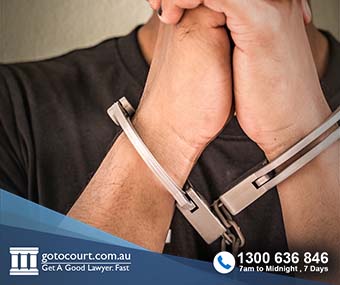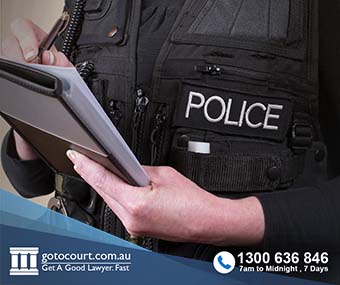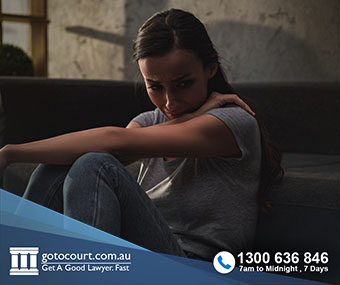Call our lawyers
now
or,
have our lawyers
call you
Grievous Bodily Harm in Tasmania
Updated on Dec 29, 2022 • 4 min read • 298 views • Copy Link
Grievous Bodily Harm in Tasmania
In Tasmania, there is a range of offences relating to unlawfully causing harm to another person. These offences are contained in the Criminal Code 1924. The most serious of these offences is causing grievous bodily harm.
Offence of wounding or causing grievous bodily harm in Tasmania
Section 172 of the Criminal Code 1924 makes it an offence to wound or cause grievous bodily harm to a person in any way.
While in many other jurisdictions ‘wounding’ and ‘causing grievous bodily harm’ are separate offences, in Tasmania they are a single offence.
What are wounding and grievous bodily harm?
Wounding means breaking both layers of a person’s skin. This may be in the form of a cut or a stab and may be done with or without a weapon. ‘Glassings’ commonly result in wounding charges.
Grievous bodily harm is any really serious bodily injury such as a broken bone, serious burn, permanent disfigurement, or the deliberate transmission of a serious disease.
Other offences involving grievous bodily harm
Tasmania also has three other offences involving the infliction of grievous bodily harm.
Under section 167B of the Criminal Code 1924, it is an offence to commit dangerous driving causing grievous bodily harm.
Under section 167C of the Criminal Code 1924, it is an offence to cause death or grievous bodily harm by a dangerous dog or restricted breed dog.
Penalty for offences involving grievous bodily harm in Tasmania
All the offences outlined above carry a maximum penalty of 21 years imprisonment . This is the standard penalty for indictable offences in Tasmania; however, in practice, most people found guilty of these offences will receive a much lesser penalty.
Jurisdiction
Grievous bodily harm offences are indictable offences and are finalized in the Tasmanian Supreme Court. However, all criminal matters commence in the Magistrates Court and all indictable matters goes through several procedural steps before it is committed to the Supreme Court to be finalized as a plea hearing or as a jury trial.
Pleading guilty to grievous bodily harm in Tasmania
If you have been charged with a grievous bodily harm offence in Tasmania, you should seek expert legal advice before deciding to plead guilty. Go To Court Lawyers’ dedicated team of criminal lawyers will advise you of the strength of the case against you, the likely penalty range given your history and circumstances, and whether you have a defence available.
If you do decide to plead guilty, our criminal solicitors will help you to present your case in the best possible light to the court. This may involve obtaining character references from people who know you and are aware of the charges, obtaining detailed instructions from you about your circumstances and background and obtaining evidence that you have taken steps to address the causes of your offending.
Pleading not guilty to grievous bodily harm in Tasmania
If you have been charged with a grievous bodily harm offence in Tasmania and want to fight the charge, you should immediately seek specialist legal advice. Go To Court Lawyers’ criminal solicitors will carefully analyse the prosecution brief of evidence and talk you through the strengths and weaknesses in the case against you. They will assess the merits of any potential legal defences and ensure you understand all the processes involved in contesting a charge.
Applying for bail on a grievous bodily harm charge
If you have been remanded in custody on a charge involving grievous bodily harm in Tasmania, Go To Court Lawyers will help you to apply for bail. Decisions about bail in Tasmania are made under the Bail Act 1994. There is a presumption that a person should be granted bail until their matter can be dealt with, but this must be balanced with the need to protect the public. If bail is granted, conditions may be imposed to allay any concerns the court has about the person’s release. These may include a residence requirement or a requirement to report to the local police at particular times.
If you require legal advice or representation in any legal matter, please contact Go to Court Lawyers.


Affordable Lawyers
Our Go To Court Lawyers will assist you in all areas of law. We specialise in providing legal advice urgently – at the time when you need it most. If you need a lawyer right now, today, we can help you – no matter where you are in Australia.How It Works








1. You speak directly to a lawyer
When you call the Go To Court Legal Hotline, you will be connected directly to a lawyer, every time.


2. Get your legal situation assessed
We determine the best way forward in your legal matter, free of charge. If you want to go ahead and book a face-to-face appointment, we will connect you with a specialist in your local area.


3. We arrange everything as needed
If you want to go ahead and book a fact-to-face appointment, we will connect you with a specialist in your local area no matter where you are and even at very short notice.










